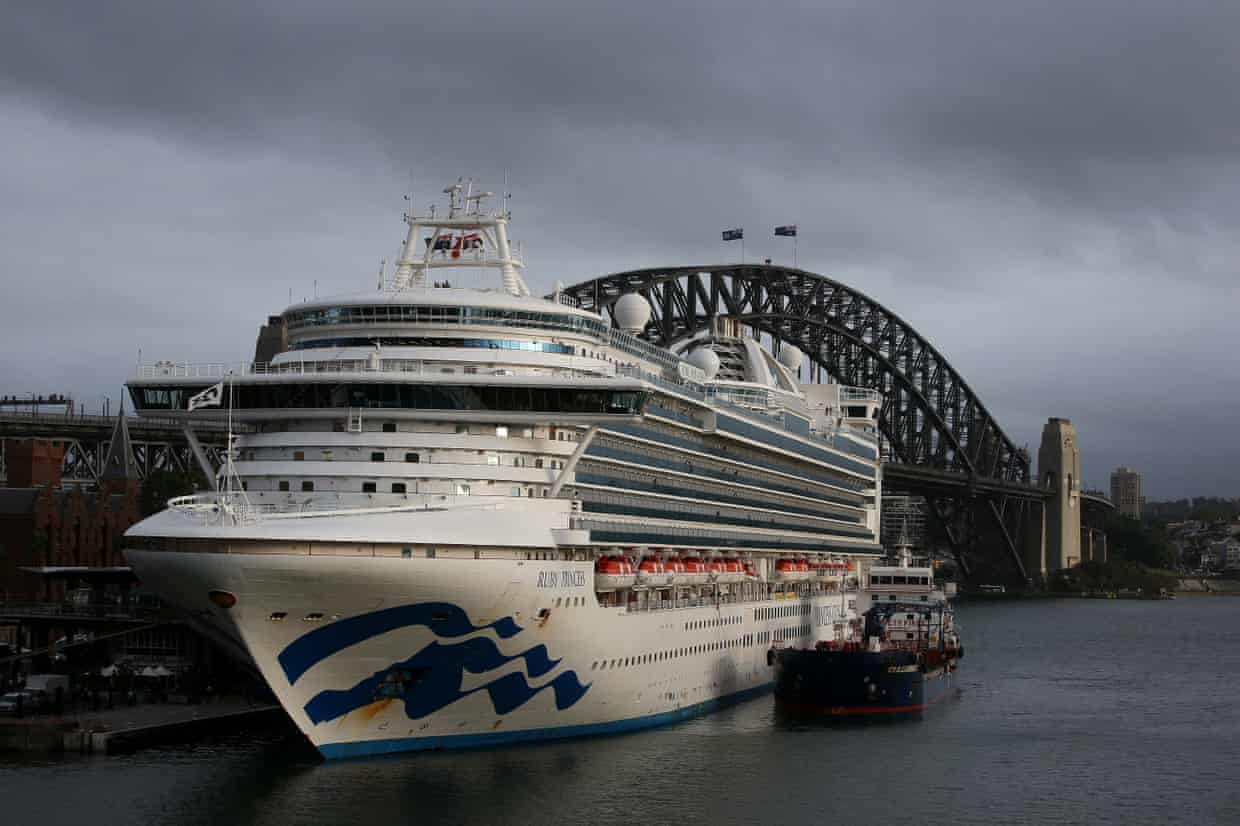
Ruby Princess
Drill on cruise ship pandemics before Ruby Princess debacle found authorities’ communications ‘robust’
Report on joint federal and state exercise held a year ago found cruise ships ‘highly compliant with ill traveller procedures’
by Naaman ZhouA 2019 drill to practise dealing with a pandemic on a cruise ship coming into Sydney concluded that communication between government agencies was “robust and well-practised”, one year before the Ruby Princess debacle.
“Exercise EmergenSea Detour” was conducted over half a day on 1 May 2019 at the Department of Health in Canberra and involved the federal Department of Agriculture and Water Resources, NSW Health, Tasmanian Health and the Victorian Department of Health and Human services.
A report of the drill, released to parliament, concluded that “strong relationships with cruise lines have been established by both Agriculture and jurisdictional health” and cruise ships are “highly compliant with ill traveller procedures”.
It also said authorities could instruct a ship to “moor out from the dock” rather than letting passengers disembark. And that the Department of Home Affairs, Foreign Affairs and the Department of Prime Minister and Cabinet should be “included in communications if there is a large outbreak of a disease with high severity”.
Centre Alliance senator Rex Patrick, who obtained the report, said it was damning that multiple agencies had practised for a Ruby Princess scenario yet still created “an operational shambles” 10 months later.
The NSW special inquiry into the Ruby Princess heard this month that NSW Health had been given an out-of-date log of sick passengers when it decided to let passengers disembark from the ship. The NSW Port Authority’s duty harbour master gave evidence that he offered to “turn it around” when he was called by the Australian Border Force expressing concerns, but that NSW Health’s assessment of it as “low risk” confused him.
Neither the NSW Port Authority nor Border Force were involved in the May 2019 drill.
The Ruby Princess cruise ship docked in Sydney harbour on 19 March with more than 100 people onboard reporting influenza-like symptoms, and has so far been linked to more than 20 deaths and almost 700 cases of Covid-19 across Australia.
The NSW health minister, Brad Hazzard, has since said it was a mistake to let all passengers disembark before Covid-19 test results had come back.
Patrick said the drill showed that the issues around the Ruby Princess, which are being examined in a NSW special commission of inquiry, had already been identified a year before the Covid-19 pandemic.
“The belated release of this report serves to underline the magnitude of the Ruby Princess failure,” he told Guardian Australia.
“The report reveals that many of the areas of concern traversed in the special commission seem to have been practised in the Exercise EmergenSea Detour, but there was still an operational shambles 10 months later.”
Participants in the drill were asked to look at a scenario in which a large cruise ship was coming into Sydney during an “influenza pandemic spreading globally”, with “a large number of people on board with influenza-like illness”.
The drill also looked at the possibility of a “novel influenza” similar to the H1N1 swine flu pandemic.
According to the report of the drill, participants discussed mooring the ship away from the dock, so that authorities could assess the ship first.
“Rather than turn a vessel away, we could instruct it to moor out from the dock,” the report said. “It would dock for assessment processes, then be asked to move away.”
Such a scenario “may be considered in cases of severe disease”, it said. “This occurs periodically and has been done for biosecurity pests. Vessels have been asked to anchor at sea in other countries, due to disease outbreaks.”
The discussion also concluded that when an outbreak on a cruise ship “may have national implications”, the agriculture or human biosecurity officer “will notify the commonwealth”.
NSW Health said it was “not appropriate” to comment on the lessons learned from the drill, given the inquiry under way into the Ruby Princess.